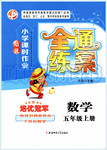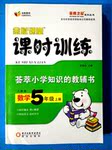题目内容
【题目】文中共有10处语言错误,每句中最多有两处。每处错误仅涉及一个单词的增加、删除或修改。
增加:在缺词处加一个漏字符(∧),并在其下面写出该加的词。
删除:把多余的词用斜线(\)划掉。
修改:在错的词下划一横线,并在该词下面写出修改后的词。
注意: 1. 每处错误及其修改均仅限一词;
2. 只允许修改10处,多者(从第11处起)不计分。
One day, I was doing my homework in the bedroom. All of sudden, the light went out, leaving me in totally darkness. My mother came in with a candle. When I light the candle, the bedroom was brightened at once. I looked at the candle and was lost in thoughts. It is very small, and it isn’t worth many. But what it gives us are great. It brightens the way of many scientist; it brightens the desks of my teachers; it also brightens my mind. I think I should learn with the candle. Small as it is, but it tries its best to giving us light and heat.
【答案】All of a sudden
2. totally---total
3. light---lighted/lit
4. thoughts---thought
5. many---much
6. are great ---is great
7. scientist---scientists
8. with---from
9. 去掉but
10. giving---give
【解析】本文是一篇记叙文。本文主要讲了有一天晚上,作者正在写作业,忽然停电了,作者的母亲点燃了一根蜡烛,照亮了整个房间。作者感叹蜡烛虽渺小,却尽自己最大的努力给人们光和热,作者认为自己应该向蜡烛学习。
第一处:考查固定短语。句意为突然,灯熄灭了。all of a sudden突然地,出乎意料地,是固定短语,所以sudden之前加a。
第二处:考查形容词。修饰名词darkness,用形容词,所以totally---total。
第三处:考查时态。这是作者在回忆往事,所以用一般过去时,light---lighted/lit。
第四处:考查固定用法。be lost in thought想得出神;陷入沉思,是固定用法,所以thoughts---thought。
第五处:考查副词。修饰形容词worth,用副词,所以many---much。
第六处:考查主谓一致。从句what it gives us作主语,谓语动词用单数,所以are great ---is great。
第七处:考查名词单复数。many修饰可数名词复数,所以scientist---scientists。
第八处:考查固定短语。我认为我应该向这支蜡烛学习。learn from向…学习,是固定短语,所以with---from。
第九处:考查让步状语从句。as可以表示“尽管”,“虽然”,引导让步状语从句,但必须构成倒装,所以去掉but。
第十处:考查固定句型。try one’s best to do sth. 尽某人最大努力去做某事,是固定句型,所以giving---give。

 小学课时作业全通练案系列答案
小学课时作业全通练案系列答案 金版课堂课时训练系列答案
金版课堂课时训练系列答案 单元全能练考卷系列答案
单元全能练考卷系列答案